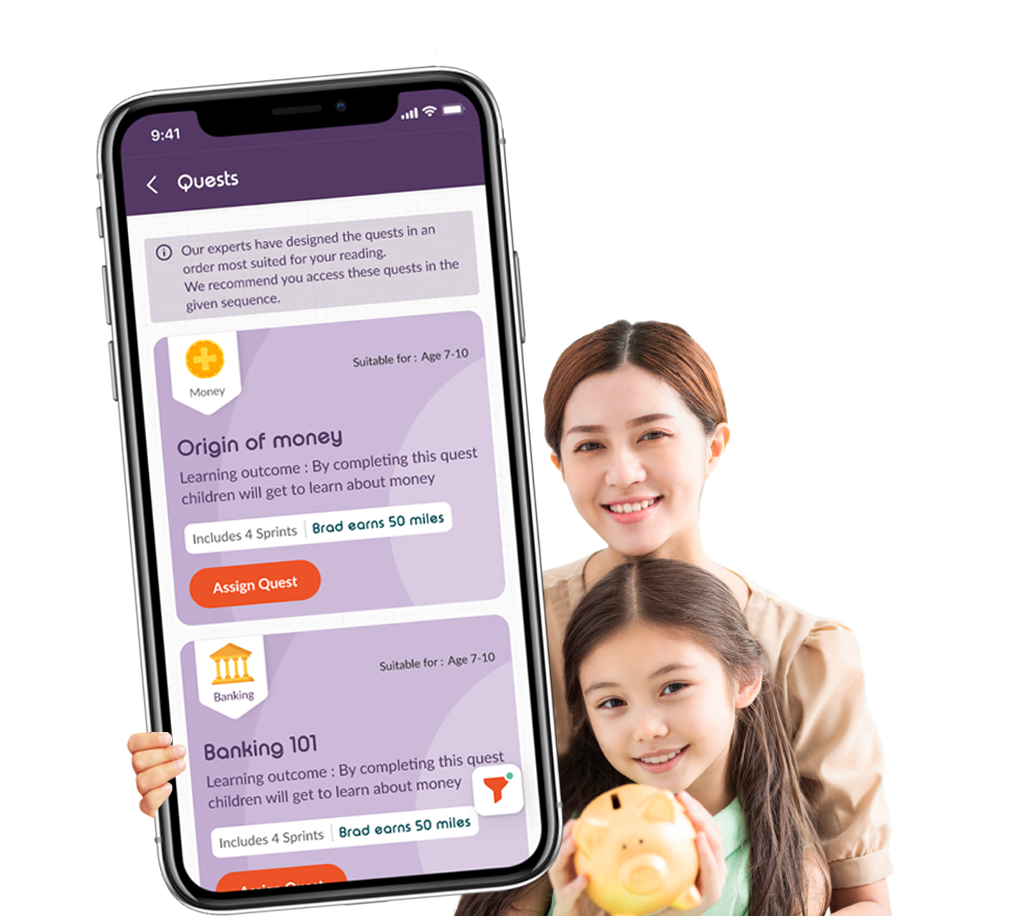Benefits of pocket money
Is pocket money actually beneficial for your kids?
It’s a fact: for almost all kids, getting pocket money is exciting. For some, it can mean the thrill of getting a new toy or having a little treat with their friends. Although the delight that comes with independent spending is endless, pocket money, when given the right way, is teaching your kids much more subconsciously.
When it comes to making decisions about this practice, however, parents often face dilemmas. When or how much pocket money to start with? Is it doing more harm than good?
Read on to find out.
What are the benefits?
While pocket money is not a practice in all households, there are a lot of benefits it can provide for your child.
Financial Independence
“There are a lot of things money can buy. But the most valuable of them all is financial freedom.”
One of the most important lessons that pocket money teaches kids is to be financially independent. With pocket money, they learn to manage their money and build a better relationship with it. This makes them independent and more confident.
Financial Planning
“Most people do not plan to fail, they fail to plan.”
Choosing how much, how, and when to spend it is one of the vital decisions children have to make when handed over an amount. The child also slowly learns to save, thus also encouraging smart spending and control.
Saving Skills
‘“It is not about how much money you make, it is about how much you save.”
Building a saving habit from childhood is imperative. It builds discipline and introduces them to the wonderful world of compounding, thus helping build a more secure future for them.
Value of Money
“Money can have a different value in the eyes of each.”
Children also learn the value of money. The idea of “hard work brings good money” is also introduced when given after tasks as rewards.
Prioritising Expenses
“It is not your salary that makes you rich, it is your spending habits.”
Research from the Asian Parents Magazine shows that most children spend the highest proportion of money on food. With a set amount of pocket money, kids also learn to prioritise their expenses. They can not only decide what and when to spend but also how much to save regularly.
Appreciation
“The sole purpose of money is to express appreciation.”
Pocket money can also help in the appreciation of small tasks that they complete for it. It also increases appreciation towards parents and satisfaction with what they receive.
How much Pocket Money Should You Give?
According to studies, children in Singapore get around $91 per month on average while in countries like India and China, the average is $35. However, of course, the pocket money amount depends on individual situations.
While there is no right amount to start with, parents can decide through “Needs vs Wants” to decide on their preferred amount. To do this, decide what you will cover and what your children will cover on their own.
It is recommended to give these small amounts as a “reward” for chores, which keeps the child focused and anticipated. These chores can include gardening, washing the car, etc.
With Milestone, it is now easier to assign chores and transfer rewards. The app enables effortless and real-time tracking, thus creating an efficient reward system for your kids and kickstarting their journey to financial education.
 Milestone Edutech Pte. Ltd.
Milestone Edutech Pte. Ltd.JustCo, Centrepoint Singapore,
176 Orchard road, #04-04,
Singapore. 238843

COPYRIGHT 2021-2022 I Privacy Policy I Terms and Conditions




